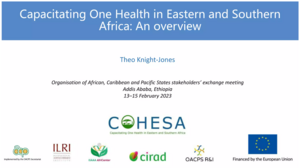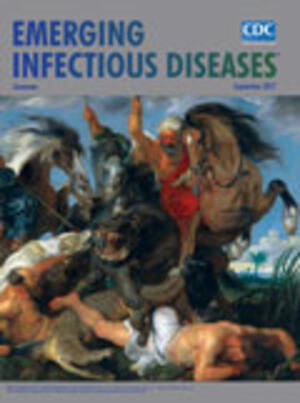
Impact of neglected diseases on animal productivity and public health in Africa
Abstract
Animal diseases have important impacts on animal productivity and welfare, and on human health and wellbeing. A survey, commissioned by the OIE, was conducted to generate information on the impact of animal diseases in OIE Member Countries in Africa. This identified priority animal diseases according to their impacts: for instance, epidemic diseases affect trade and assets, endemic diseases affect livestock and fish productivity, zoonoses and food-borne diseases are a threat to human health and emerging diseases can shock economies. The survey identified animal diseases that most impact on different aspects of national economies. It found that state Veterinary Services rank human development impacts of disease as especially important when deciding on disease priorities. For most diseases, respondents reported that control is only fair or poor. However, good progress is reported in developing priority disease lists and contingency plans and inclusion of both public and private veterinary services in vaccination.
Overall, animal diseases were seen to be increasing (44% of the diseases assessed) or static (also 44%); this is another indicator that investments in better control are required. Disease increase was the result of a number of drivers, the most important of which were climate change, trade, population growth and livestock intensification. In terms of disease prevalence, respondents reported that many important diseases were common. They also reported that treatments were commonly applied. These are both indicators of the high impacts of disease. Only a minority of animals are slaughtered in approved abattoirs, a situation that poses a risk to human health. Respondents provided estimates of disease parameters, which were used to generate a preliminary estimate of some economic impacts of animal disease on the livestock sector. The 35 priority diseases were estimated to cost nearly USD 9 billion a year, equivalent to 6% of the total value of the livestock sector in Africa. Most of this cost was from the death of adult animals, followed by the death of young animals, the cost of vaccination campaigns and the cost of treatment. Microbial hazards, many of which are zoonotic and/or associated with food of animal origin were seen to be of great importance to human health and a source of economic losses. Antimicrobial resistance, linked to the use of antibiotics in agriculture, was also a cause for concern in most countries.
Better disease reporting can lead to a better understanding of the impacts of animal diseases. Respondents put forward suggestions on how this could be achieved. Suggestions as to how the OIE could best support the control of animal diseases were also put forward.
Citation
Grace, D., Songe, M. and Knight-Jones, T. 2015. Impact of neglected diseases on animal productivity and public health in Africa. Presentation at the 21st conference of the World Organisation for Animal Health (OIE) regional commission for Africa, Rabat, Morocco, 16-20 February 2015. Nairobi: ILRI










